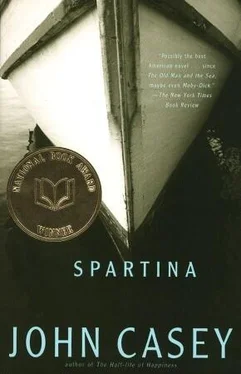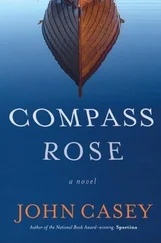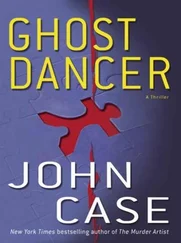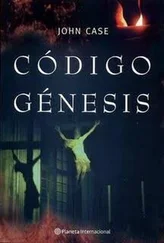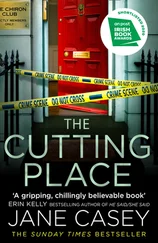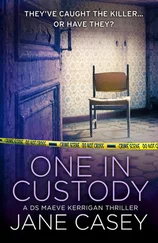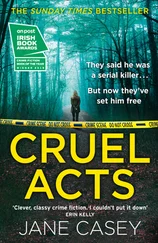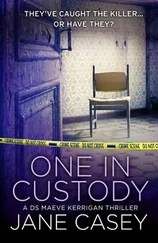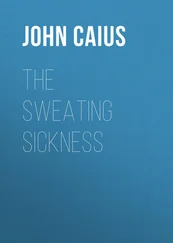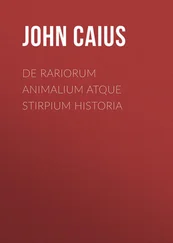The woman said, “I know about Mr. Goode.…”
Dick said, “If I had a boat it wouldn’t be a question of risk, I could sign up with Joxer Goode and haul red crabs. There are boats not much bigger than mine bring in twenty thousand dollars’ worth of red crabs two and three times a summer. Joxer Goode has contracts in Providence and Boston, pretty soon he’ll be shipping to New York City. His crabmeat sells at half the price of lobster, restaurants love his crabmeat, he’s going to get rich. And the boats supplying him are going to make good money. He needs more boats, he can’t get enough lobstermen to put out for crabs. They’re stuck in their ways, and some of them are scared to go all the way out to the edge of the shelf. I’m ready to go. I need twenty thousand dollars and before next summer is over I could pay you your 17 ½percent. That’s just on crabs. On the way out and on the way back I could stick a few swordfish. At four fifty, five dollars a pound, average size two hundred pounds, that’s nearly a thousand dollars a fish. I’d have to be missing both arms if I couldn’t bring in an extra ten thousand from swordfish.”
Dick pulled out the glossy green-and-white flyer he’d picked up in the bank lobby. He turned to the page with green cartoons. There was a house, a kid in a cap and gown holding a diploma with dollar signs flying around his head, and there was a big motorboat. Dick pointed to the caption: “Let us help your dream come true.”
The woman looked genuinely sad. Dick said, “Fishing-boat captains who own their own boats make around forty thousand a year. I’ve been on their crews, I’ve built two of their boats when I worked in the boatyard. I’ve been on the water my whole life. I could be making good money, and you tell me to go on welfare.”
The woman said, “If it was up to me …”
“Yeah, okay, you don’t hear me cussing you. It’s the way it works — when I’ve got the money, the bank’ll lend me the money.”
The woman squared up her desk blotter with her fingers. Dick said, “Thank you.”
The woman said, “Have you thought of asking Mr. Goode to help you finance your boat?”
“Oh yeah. One of these days he might get time to take a look.” Dick thought he’d talked enough for that day. He said thank you again and left before he got into the story of his miscue with Joxer Goode. He got into his pickup and got out of Westerly. He felt a sludge of depression. The pickup backfired as he slowed down for a light, reminding him he’d have to put in a new muffler. At least he hadn’t got mad at anyone this trip, not so he said anything drastic.
Now, drifting on the swell, he decided to leave his pots where they were. He’d spend the afternoon tonging until he had enough quahogs to make the trip to the shellfish store in Wickford worthwhile. The quahogs put him in mind of steamers — summer prices had begun, and he had a scheme for steamers that would bring him several satisfactions. The moon was right, the tides were right. There was a risk, but if he pulled it off it would make up for a lot.

D ick had had this plan ever since a Natural Resources officer had run him out of the bird sanctuary. Dick had dug steamers on the inside beach of Crescent Pond his whole life. When they set up the bird sanctuary Dick was all for it; it meant the salt marsh would be pretty well preserved, from Sawtooth Creek all the way to the Green Hill restaurant. Dick still owned the sliver of marsh between Pierce Creek and Sawtooth Creek and he could still shoot ducks and geese on that edge of the sanctuary. Clamming was allowed, but the Natural Resources officer had run him out of Crescent Pond because he’d come in with his skiff. No motors in the bird sanctuary. Dick said he’d row. The officer got stiff about it, impounded his peck of steamers. The only other way to get to Crescent Pond was to walk the mile-long trail from the state parking lot. Easy enough if you didn’t have a basket of clams to carry.
Tonight Dick was going to satisfy himself. He’d borrowed Eddie Wormsley’s tractor with its front scoop. At eleven at night he got his two sons to climb on back, drove the tractor out of his own driveway, down the shoulder of Route 1, and nipped into the bird sanctuary, where a tree had fallen across the woven-wire fence and pushed it down. There was an old causeway that the farmer who’d owned the marsh in the 1800’s had put in for his wagons to come and get salt hay. It was probably a hundred years old, silted over and covered with grass and bushes, but firm enough to keep the tractor from bogging down. The boys clung to the fenders, their feet on the clevis bar, ducking as the branches of scrub whipped past. When they got to Crescent Pond, Dick lowered the front scoop. The beach was bare twenty yards out — a full-moon low tide. Just up from the waterline Dick stuck in a corner of the front scoop and drove, cutting a trench fifty yards long. The moon gave enough light so that the boys could pick up the clams and toss them into the fifty-five-gallon drum Dick had lashed to the clevis bar and the back of the driver’s seat. By midnight they’d filled the drum. Dick thought he heard the Natural Resources jeep on the seaside beach. He raised the scoop, the boys climbed on back, and Dick notched the throttle up to get them up the slope of sand and over the crusted lip of earth where grass and scrub began. Dick kept up his speed back along the swath he’d cut on the way in, the boys clinging like limpets to the back of the tractor, ducking branches and vines. Dick shut the motor off when he got near Route 1 and sent the older boy out to the shoulder to make sure the coast was clear. Dick drove the few yards necessary to get past Sawtooth Creek, then turned into the tangle of brush that was his sliver of land between Pierce Creek and Sawtooth. When he got in a ways he stopped, and he and the boys loaded gunny sacks with the clams, tied the throats of the sacks, and lowered them into Pierce Creek. Dick left the boys to finish with the clams on their own. Dick got the tractor back to his yard, up onto the flatbed trailer, hitched the flatbed to his pickup, and drove as fast as he dared to Eddie Wormsley’s. Dick told Eddie what he’d been up to. Eddie laughed, but he got worried too. Eddie had been caught killing a swan the year before. The Natural Resources officer let him go, but he didn’t want more trouble. Dick hosed down the front scoop and the rear tires and scrubbed out the treads of the front tires with a wire brush. Eddie made him pick out the leaves and pieces of vine. Dick asked him if he wanted a cut when he sold the clams. Eddie wavered, finally said he’d better not. Eddie gave Dick a beer and then sent him home. Dick knew it must be late — Eddie was famous for his night hours.
Dick was up at dawn. He loaded the gunny sacks into his skiff and skipped past Westerly on the glassy morning sea. He sold the clams to a shellfish dealer in Connecticut for $112.
He set some more pots on the way home, and pulled and rebaited his others. He was pinching with hunger by the time he got back. The tide was just trickling in, so he had to scull the last bit to his dock. He made himself a sandwich in the kitchen, but his wife, May, heard him and lit into him before he could start eating. She was weepy with anger. She took him to the boys’ room. They were lying on their beds with the covers back, their legs and arms puffed up like wormy logs.
“Look at that! Just look at that!” May almost never got mad at him, and when she did he always felt awful, but this was worse than usual. Dick saw what had happened — the ride through the brush had whipped some cuts across their arms and legs — their hands were okay since he’d made them wear gloves to pick up the clams. Poison ivy had got into the cuts and scratches and foamed up in wet blisters and raw spots. May wanted him to take them to the hospital. Low as he felt, Dick resisted that idea. Dick said he’d get them something from the drugstore if they would go lie in the salt creek till he got back. “It’ll sting some, but salt water’ll pull the juice right out. I swear, May, it’s the best cure. When I got fish poisoning all up my arm I cured it with salt water.” May wouldn’t answer him, but the boys did what they were told. Dick felt bad enough so he spent more than twenty dollars on tubes of cortisone gel.
Читать дальше
